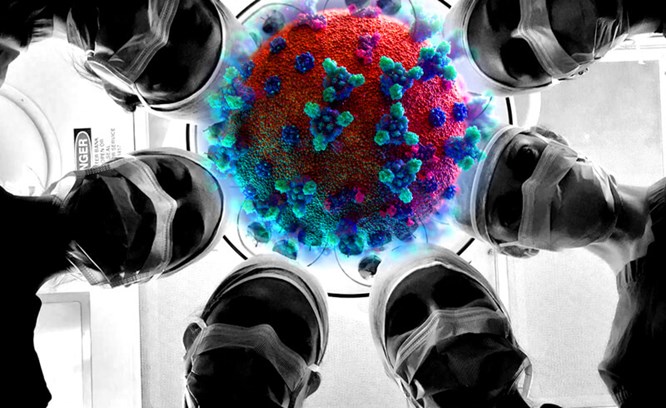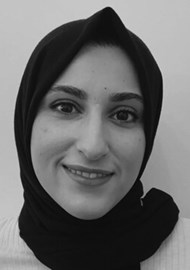
The COVID-19 pandemic has had profound effects on medical education and has called for large shifts in the medical curriculum. Clinical attachments were suspended at the height of the pandemic and examinations were cancelled or were moved to an online platform in some cases.
Now, some modifications have been made by several medical schools in order to allow for the progress of medical students. Most of the teaching is delivered via an online platform which seems suitable and probably has similar effects to teaching in a lecture theatre or small group teaching. Nevertheless, the impact of the pandemic on medical students’ experiences cannot be ignored. Clinical experiences shape a large, and arguably the most important, part of medical education and loss of this will have significant repercussions on students. These experiences help to refine knowledge, improve patient encounters and allow individuals to gain insight into the workforce [1]. They are critical in shaping and influencing a student’s future career choice.
The impact of the loss of these enriching experiences will be felt in an unequal manner amongst specialties, in particular those with already low exposure in the pre-COVID-19 curriculum. Even prior to the pandemic, not all students have exposure to all specialties as the field is huge and therefore core specialties are focused on, which may understandably present a threat to education in certain specialties, such as dermatology and neurosurgery [2,3]. However, students had several opportunities to explore beyond the specialty they were assigned to; for example, during multi-disciplinary meetings several experts would gather in a room and students would have access to experts in specialties they would not have been aware of.

A recent survey in the US found that approximately one-fifth of the medical students surveyed thought the pandemic would affect their specialty choice, with the most common cited reasons being inability to explore specialty of interest and inability to strengthen portfolios for higher training [4]. Ophthalmology is a competitive specialty and one that most gain exposure to in their final years of medical school given its specialist nature. Some students will unfortunately have to forfeit their ophthalmology placements as a result of missing more core placements. These students may have an opportunity to regain this experience during their foundation training (although ophthalmology jobs in foundation training are exceptionally rare). Using a study in psychiatry as an example, experience during foundation training increased engagement in pursuing a career [5]. Furthermore, there are fewer numbers of doctors entering specialty training immediately after their FY2 year in order to take time out to gain further experience [6]. Hence, the impact of clinical experience on shaping specialty career choice cannot be ignored.
Even though students may not have a placement in ophthalmology, it may not significantly impact the choice of pursuing the specialty amongst students. Clinical experiences are invaluable in giving an insight into work-life balance and the type of clinical work the student may enjoy which will help immensely in their research into specialties. For example, students may enjoy both surgical and medical placements which may lead them to research ophthalmology as a career choice.
Traditionally, medical students had the opportunity to direct their experiences in the form of student selected components (SSC) and medical electives. Certainly, the impact on medical electives may be predicted with travel bans limiting opportunities for students. It is not clear yet whether current students have had their SSC removed to make up for lost attachments, but if this is the case then it will mean more sacrifices. One cannot ignore the impact of engagement in extra-curricular societal activities at universities, which play a huge role in increasing awareness of specialties. Of course, many of these events will now be adapted and moved from face-to-face encounters to online platforms which may limit the experience to a certain extent. This, combined with cancellation of conferences (or the move to virtual conferences), limits opportunities for current students to fully explore their options and certainly affects their career perceptions [1].
Overall, COVID-19 will have an impact on clinical experiences that medical students have. Where some doors have shut, for example the loss of certain medical attachments and placements, others have opened. In particular, there are more opportunities to explore fields and specialties via the online platform. This increases accessibility to all students and reduces some of the inconveniences that may come with face-to-face opportunities. Hence, the quality of such online experiences becomes important and key to instilling the passion for ophthalmology in students naïve to the field.
References
1. Ferrel, MN, Ryan JJ. The Impact of COVID-19 on Medical Education. Cureus 2020;12.
2. Loh TY, Hsiao JL, Shi VY. COVID-19 and its effect on medical student education in dermatology. Journal of the American Academy of Dermatology 2020;83:e163–e164.
3. Chae JK, Haghdel A, Guadix S, et al. Letter: COVID-19 Impact on the Medical Student Path to Neurosurgery. Neurosurgery 2020;87:E232-E233.
4. Byrnes YM, Civantos AM, Go BC, et al. Effect of the COVID-19 pandemic on medical student career perceptions: a national survey study. Med Educ Online 2020;25:1798088.
5. Doris M, Grimason A, Hughes D, et al. Who wants to be a psychiatrist? Northern Ireland foundation doctors (2006–2018) are positive toward psychiatry as career choice. BJPsych Bull 2020;44:134-8.
6. Lachish S, Goldacre MJ, Lambert TW. Views of UK doctors in training on the timing of choosing a clinical specialty: Quantitative and qualitative analysis of surveys 3 years after graduation. Postgrad Med J 2018;94:621-6.
COMMENTS ARE WELCOME






